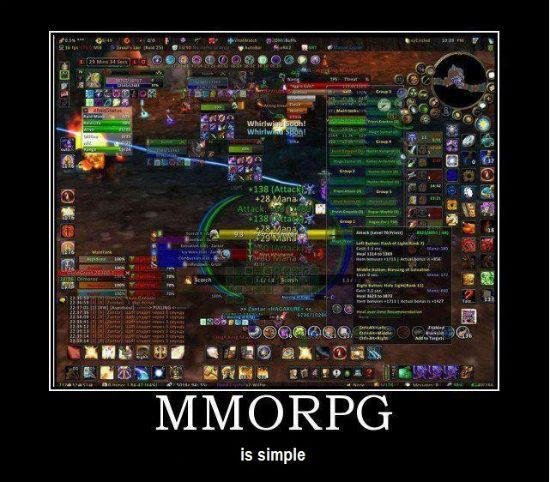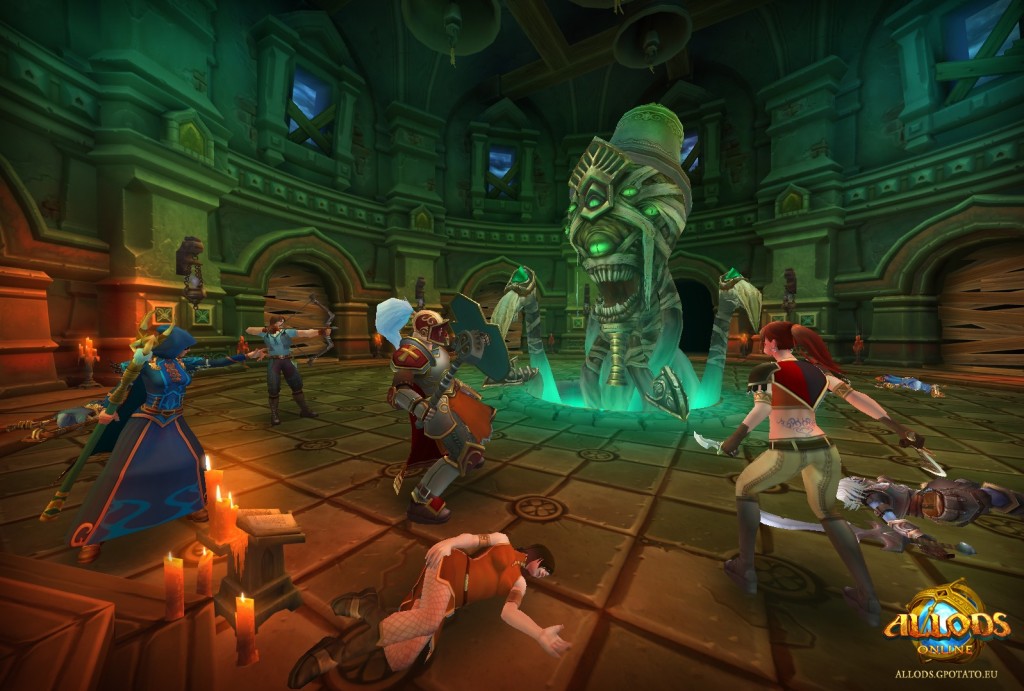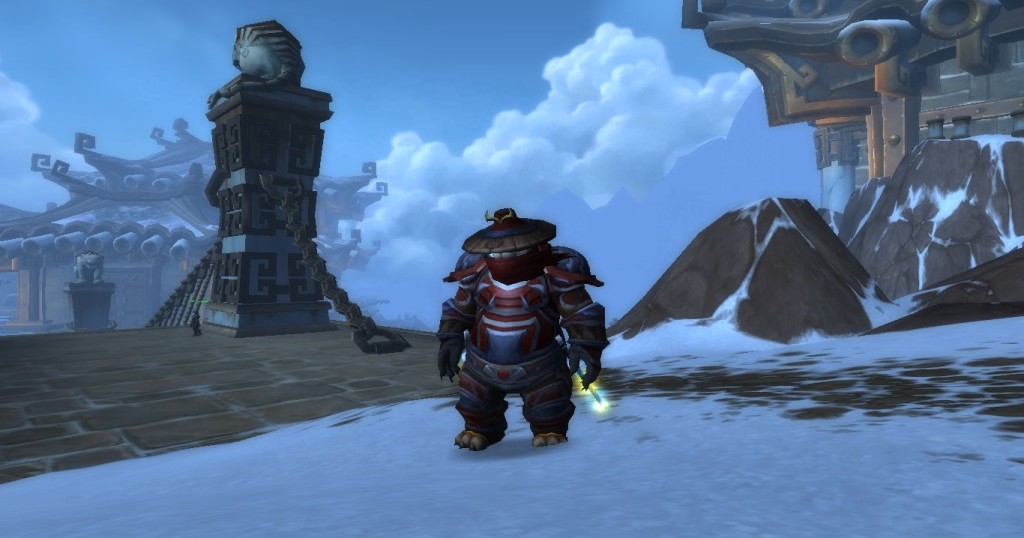Last updated on February 8, 2013

Place the lives of children in their formative years, despite the convictions of their parents, under the intimate control of experts appointed by the state, force them to attend schools where the higher aspirations of humanity are crushed out, and where the mind is filled with the materialism of the day, and it is difficult to see how even the remnants of liberty can subsist.
J. Gresham Machen, Christianity and Liberalism
HEADLINE: The Massively Multiplayer Online Role-Playing Game officially died sometime last month.
Oh, wait, there’s still millions of them around, or at least a cursory look on the Internet would give the impression as such? Why doesn’t anyone bother to cover them in any extensive detail? Notice how almost every major publication seems to ignore them outright, with a tidbit here and there for supposed “revolutionary” cases (Hello, Star Wars: The Old Republic! How are you?)
There’s a precise and detailed reason why, and any look at the current news media of America should give you a guess. Contrary to what you might imagine, journalists and media outlets remain the gatekeepers of information. To suppose that most of the United States somehow obtained a high speed Internet connection sometime in the last ten years completely overstates our technological development in one regard. Between the East and the West Coast, there’s a long stretch of people living the same way they’ve always lived for the past century with minor adjustments to a frontier lifestyle. This may be why, when I watch American Idol, it’s hard to tell whether or not the show’s being condescending to the guy from Missouri or not. The country bumpkin music doesn’t quite give up the ghost, or maybe it does.
I am not making a judgement call on this lifestyle, you understand; why should the “more civilized” of us force the rest of the country into a particular mold? There’s an ideology behind the way said groups and communites find treatment that I find disgusting and completely unfitting to the subject matter. Rather, these communities do not have the same incessant access to information as the sides of America – that does not make them bad or wrong, just different. The newest generation? Absolutely; I’m sure some teenage girl is texting somebody, somewhere with an iPhone. But the people who go and vote, the people who make money? Not so much. Love that sweeping generalization! Not everyone needs to keep up with whether or not you’re having a bad day, or that video about adorable kittens (you know the one. And that one).
So, imagine what a normal person (unlike myself) will first explore to discover video games. They might use MetaCritic, read reviews from notable publications (read: they’ve been around longer than anyone else, so they’re experts for some reason), and then make their buying decision purely by that narrow criteria. Not every person keeps enough time or inclination to scour the Internet looking for alternative sources of information. The larger website use search engine optimization to ensure that they remain the premier source for information, especially for those less inclined to search.
In that sense, the MMORPG market became a ghetto, a subtly enforced one. Not pointing to them outright, the media saw fit to ignore them as complete grindfests, or a dying genre, or simply an outdated one. How often have you seen coverage for the hundreds, if not thousands, of these fascinating Free-To-Play games with great art styles and interesting worlds? No one wants to hear more coverage about World of WarCraft, I gather. It’s only a virtual world filled with real people playing avatars and cooperating on tasks for eight straight years. There’s nothing revolutionary or interesting about that, I’m sure. When you’ve promoted a certain kind of narrative expectation on an audience, then this is exactly what they want and reveals what said persons reject. I’m glad to see dedicated news sites like Massively and WoWInsider for such things (and Joystiq runs them both, no surprise), but they’ve become a niche all of a sudden. Perhaps it’s because development companies saw they couldn’t make a big profit; so too do the writers they pay also exit the market space.

Hilariously (or maybe not), this happens in every cultural context on the planet. People don’t magically decide that we want “X”, whatever “X” might be. Instead, the modern media train forces the idea into your brain, promoting it as “normalcy” without actually saying it. There’s a prominent example in the recent explosion of effeminate males on television, for example; ten years ago, I don’t think anyone could imagine that this would become completely acceptable, more an afterthought than a rigorously argued belief, but here we are! Now the metrosexual explosions spreads everywhere, and it comes about through subtle manipulation.
No matter what stage of life, we as a people find ourselves manipulated at every turn. We do not question everything, simply because we’re not told to question everything. Even in college, one must ask: why am I at college, and why does there seem to be a particular bias here? Why does the other side not get any recognition? What’s with the one-sided history? Surely the situation was not as black and white, oppressor and oppressed, in the way they portrayed it?
White-washing happens everywhere, folks. Reading between the lines is harder than it’s ever been. If you’ve ever heard the old trope that “MMOs require grinding, not skill” or that “everyone that plays them is a reclusive nerd”, then you’ve bought into the predefined narrative of the video game journalist. Grinding certainly remains the primary characteristic of said games – but what is the point of that “grinding”?
To take a philosophical look, “grinding” equates to a repetitive activity in which a player partakes to reap a reward. Does the process still constitute grinding if, at the same time, the game develops a plot, or forces you to fight against other players, or switches the quests every time you do them from a large pool of different challenges? The end goal of most MMOs in the current space isn’t to spend all your time making numbers go up. To use my MMO of choice, World of WarCraft wants you to gear up so you can face difficult challenges in raiding. Or it wants you to gear up by doing PvP so you can fight more effectively in Battlegrounds. Or it wants you to level up your professions to gain stats and make lots of money on the Auction House (trust me, plenty of crazy people made millions and millions of gold). Or maybe the player wants Pokemon in their WarCraft and opts to train their pets to be the very best. Catch’em all, as they say! Or maybe, you want to do daily quests and gain faction reputation for vanity items (LIKE COOL HATS).

These provide the same rewards most games do – a sense of satisfaction and delight at surmounting a particular task and achieving a particular result. All MMOs do, instead, is present a time constraint, or make that challenge take a long time, or force a person to endure a rigorous, cooperative challenge with their friends (virtual and real) to overcome. I am trying and failing to see why this means MMOs don’t appeal. Certainly WoW’s subscription numbers alone and the amount of money spent on said games testifies to their longevity (or maybe the addictiveness, I’m not sure). Many of them present the same fundamental experience in a host of different ways, and I’m grateful for the diversity. But the unrelenting focus on “one game”, in deference to “many games”, throws many people off. They can’t think that one game might actually become sufficient (and prevent you from spending more than fifteen dollars a month, or nothing at all depending).
Thus, the media’s almost complicit in forcing you to play “hot game X” when it advertises yet ANOTHER sixty dollar product that will only last a few weeks, at most. This is why the media needs alternatives, like blogs and niche websites, not to cater but present new viewpoints that don’t follow with the mainstream. Christians need to think out of the box in these discussions, or find themselves manipulated in the same way. Christ came not so you could think like everyone else, but to think like yourself. Attempts to level us out, liberalize us all, or to make us the same takes away our uniqueness. Jesus was nothing if not a unique person in Himself. To take a large example, read the story of the Healing at Bethesda in John 5:
After these things there was a feast of the Jews, and Jesus went up to Jerusalem. 2 Now there is in Jerusalem by the sheep gate a pool, which is called in Hebrew Bethesda, having five porticoes. 3 In these lay a multitude of those who were sick, blind, lame, and withered, [waiting for the moving of the waters; 4 for an angel of the Lord went down at certain seasons into the pool and stirred up the water; whoever then first, after the stirring up of the water, stepped in was made well from whatever disease with which he was afflicted.] 5 A man was there who had been ill for thirty-eight years. 6 When Jesus saw him lying there, and knew that he had already been a long time in that condition, He *said to him, “Do you wish to get well?” 7 The sick man answered Him, “Sir, I have no man to put me into the pool when the water is stirred up, but while I am coming, another steps down before me.” 8 Jesus *said to him, “Get up, pick up your pallet and walk.” 9 Immediately the man became well, and picked up his pallet and began to walk.
Now it was the Sabbath on that day. 10 So the Jews were saying to the man who was cured, “It is the Sabbath, and it is not permissible for you to carry your pallet.” 11 But he answered them, “He who made me well was the one who said to me, ‘Pick up your pallet and walk.’” 12 They asked him, “Who is the man who said to you, ‘Pick up your pallet and walk’?” 13 But the man who was healed did not know who it was, for Jesus had slipped away while there was a crowd inthat place. 14 Afterward Jesus *found him in the temple and said to him, “Behold, you have become well; do not sin anymore, so that nothing worse happens to you.” 15 The man went away, and told the Jews that it was Jesus who had made him well. 16 For this reason the Jews were persecuting Jesus, because He was doing these things on the Sabbath.17 But He answered them, “My Father is working until now, and I Myself am working.”
18 For this reason therefore the Jews were seeking all the more to kill Him, because He not only was breaking the Sabbath, but also was calling God His own Father, making Himself equal with God.
What I find fascinating, and what you should also note, comes from Jesus’ mindset. He does not come to say “new” things, but to usurp the old ways. He does not come to abolish the Law, but to fulfill said law. In this passage, he bucks the trends of the Judaism of His day simply by violating their rules for a greater cause. Everybody wants to kill the guy who isn’t acting with preconceived notions of “civility”, I suppose. Everyone wants to suppress the person who doesn’t think like everyone else. But those, for good or ill, become the people who change history, level civilizations, and establish empires. Probably helps if you’re God, too!
Haven’t you ever had that moment when you thought “something’s wrong here”, but couldn’t quite put your finger on it? That’s exactly the conclusion I saw in my Christian life. I’ve been exposed to nearly every theological system of the Western world. Many of them try their best to fit Christianity into modern culture’s mold, but they reduce its finer qualities to their own detriment. We receive, instead, some bizarre naturalistic religion that purports to call itself “Christian” To use a video game analogy, it’s the same reason why JRPGs trying to fit into the Western RPG mold may as well slice off the “J” – it’s just not the same thing.
And, worst of all, to compromise is to dilute. And to dilute, further, brings us to the point where We Are Like Everyone Else – easier, but no longer the bearers Truth that sets people free. Stop letting yourself go to the modern age and be transformed by the renewing of your mind in Christ Jesus. The Lord of the Universe in faith remains a far better partner and friend than a constantly shifting standard of tolerance. We need to make culture, not passively consume it. We need, in other words, to think for ourselves.
To bring back truth, on a practical level, the church must encourage Christians to be not merely consumers of culture but makers of culture. The church needs to cultivate Christian artists, musicians, novelists, filmmakers, journalists, attorneys, teachers, scientists, business executives, and the like, teaching its laypeople the sense in which every secular vocation-including, above all, the callings of husband, wife, and parent–is a sphere of Christian ministry, a way of serving God and neighbor that is grounded in God’s truth. Christian laypeople must be encouraged to be leaders in their fields, rather than eager-to-please followers, working from the assumptions of their biblical worldview, not the vapid clichés of pop culture.
– J. Gresham Machen
